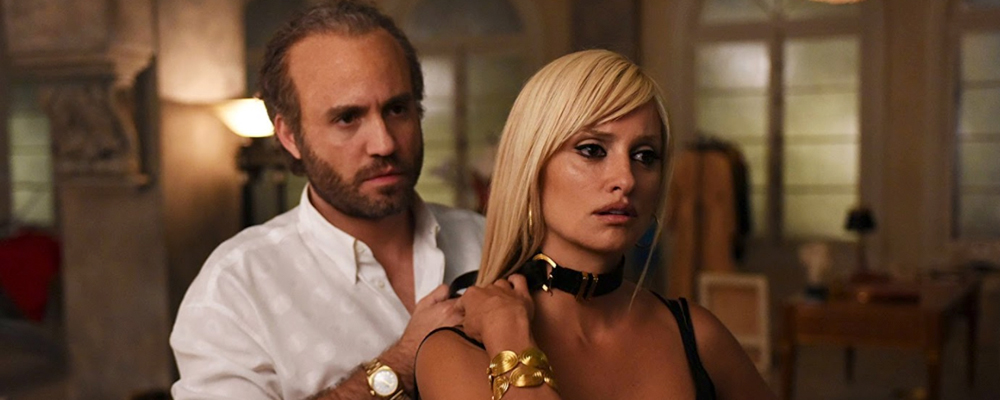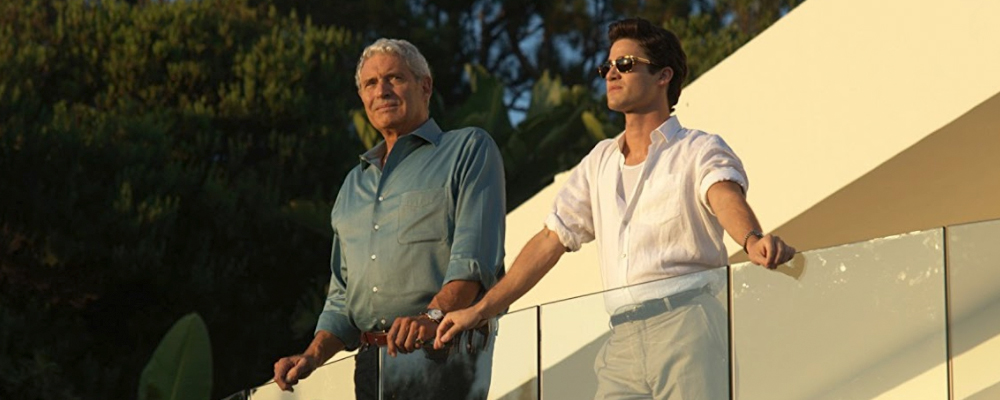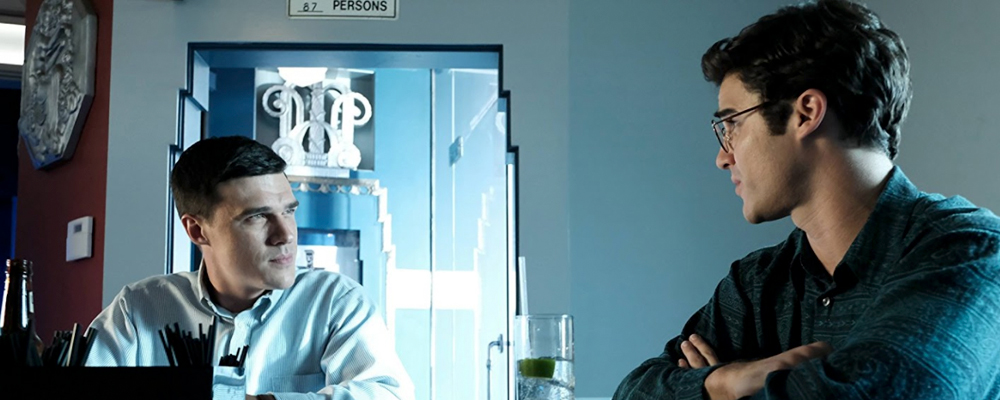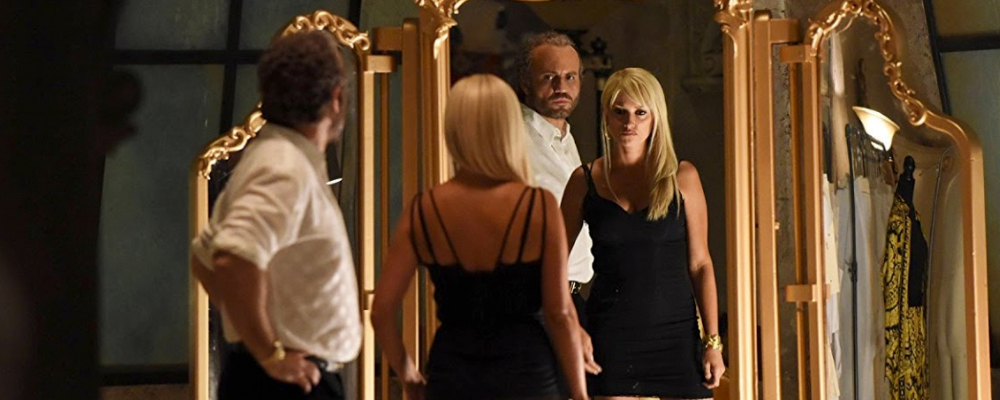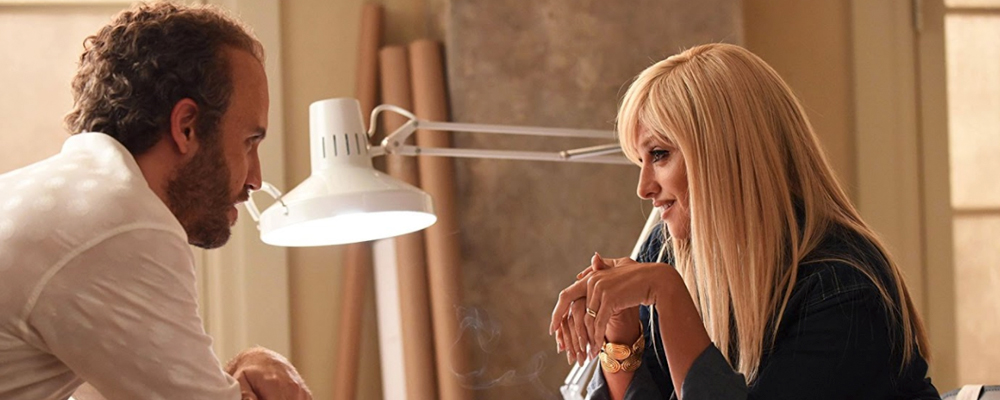‘The Assassination of Gianni Versace’ Finale Brings the Life of the Designer’s Killer to a Fitting End
Alci Rengifo
It all came to this. After years of flaunting false wealth, nursing his obsessions and spiraling into a web of self-made lies, Andrew Cunanan finds himself cornered and alone in the tragic finale of “The Assassination of Gianni Versace: American Crime Story.” Until this point the series had become a darkly fascinating, disturbing profile. It began with the opulence of the world of designer Gianni Versace, but then became a chronicle of his killer Cunanan’s development. The choice of narrative was risky, each episode going forward and backward in time, while still trying to fit in biographical details of Versace himself. But as the lifeline of a man who goes from narcissistic dreamer to assassin, the series is quite riveting. In the finale the journey culminates in ways that seem inevitable when looking back at all that transpired before.
The finale opens with Cunanan (Darren Criss) on the run after having shot down Versace (Edgar Ramirez) at his Florida home. He breaks into a house and barricades himself there, popping open a champagne bottle while watching news reports on the killing. But when it becomes clear the FBI knows it was him who killed the designer, Cunanan becomes a trapped man. He has no friends left because he has used, swindled and hurt most of them. His unstable mother (Joanna Adler) can only look on in despair, his own egomaniacal father Modesto Cunanan (Jon Jon Briones), exiled in the Philippines to escape fraud charges, is completely unreliable. Trapped and losing himself in memories of past exploits, Cunanan awaits the end. Meanwhile the Versace family buries Gianni. His sister Donatella (Penelope Cruz) is now fully in control of her murdered brother’s fashion empire, while his longtime partner Antonio (Ricky Martin) finds himself shut out.
“American Crime Story” as a series personifies the nostalgia wave on television which has been revisiting some of the most infamous crimes, scandals and tragedies of the 1990s. Its first big success was 2016’s “The People v O.J. Simpson,” which was an engrossing court drama following all the major players in the Simpson trial. But with “The Assassination of Gianni Versace” the show takes on a riskier angle. Because the actual celebrity in this case was the victim, the show opts to turns the killer into the prime focus. What we get isn’t terribly scandalous. Instead this is a real tragedy and a portrait of a life becoming increasingly unstable and dangerous. We follow Cunanan as he hunts for “love” in California and then Florida’s gay scene, attempting to make friends when what he really wants is adoration. Everyone can tell he is highly intelligent, but when an older, wealthy man who shelters him in exchange for companionship criticizes him for not working, Cunanan snaps and whines that working is “so ordinary.” At first he seems lazy or entitled, but as the show moves back and forth between friendships and conquests, what develops is the image of a narcissist transforming into a predatory psychopath.
The technique of the show is to scramble the timeline. In one episode Cunanan kills someone he perceives to be a threat to his relationship with another man, but the next episode will then show us how the three even met, and so on. It is as if the show wants to be as disoriented as Cunanan himself, but it works because it develops the very feeling of an investigation where all the pieces slowly come into place to form a bigger picture.
The finale brings everything together into one, final and sad portrait. Cunanan, the obsessed connoisseur of fashion, is reduced to eating dog food to survive, and we remember that in a previous episode he chastises his mother for not buying the more expensive ice cream at the store. His entire life has been an unraveling. He gets by with lying about family wealth, but in one powerful episode we see the story of his crooked father Modesto, drunk with dreams of becoming rich in America and spoiling Cunanan to no end. Eventually he becomes a fraudster in the investment world and runs away in a foreshadowing of his own son’s fate. When Cunanan calls his father for help, we realize Modesto has been selling interviews to the press.
Where the show gets a bit clunky, including in the finale, is in balancing Cunanan’s story with Versace’s story. The surface of the designer’s life is barely explored, and in some episodes there is the curious technique of giving us some lengthy scenes showing Versace at work, fighting with Donatella, and loving Antonio, only to cut right back to Cunanan. How the two are directly connected remains vague, and in reality nothing proves that they ever were. The series, and even the finale, gives the impression there was not much there except a wistful (yet fabricated) meeting that triggered Cunanan’s obsession — one where he begs Versace to let him be an assistant, but the designer seems to sense there’s something off.
The final espisode also curiously tags on an extra storyline involving the wife of one of Cunanan’s victims. At one point she reads letters sent by people her husband helped in life. But if this series it to represent its title, it’s unnecessary, extra material. Though, one interesting, connecting thread is throughout the series is how the show explores the homophobia of the times. At one point, Cunanan begs one of his victims to marry him, but is reminded by him that it is illegal. And in the finale there is a memorial service for Versace in which a priest accepts a kiss on the hand from every attendee, except from Antonio, Versace’s lover.
“The Assassination of Gianni Versace” is rough on some edges, but in its completeness it is a fascinating, operatic portrait of a flawed personality sealing his own fate through lies and delusions that lead to desperation — and then to a final pulling of the trigger. Overall, the series features an impressive sense of style and cinematic atmosphere. And while Ramirez, Cruz and Martin are all strong in their roles, it is Darren Criss as Cunanan who dominates. He brilliantly evokes the character and his delusional ego. In the closing chapter as the net closes in on him, Criss transforms from overconfidant to subdued, shattered, and despaired.
The life of Gianni Versace is no doubt fascinating and worthy of its own show or film, but the heart of this series is the road walked by his killer, not one worthy of Versace’s name in the title. It remains to be seen where “American Crime Story” goes from here, as it has a deep well it can draw from, because crime, like human folly, is eternal.
“The Assassination of Gianni Versace: American Crime Story” season finale aired March 21 at 10 p.m. ET on FX.

